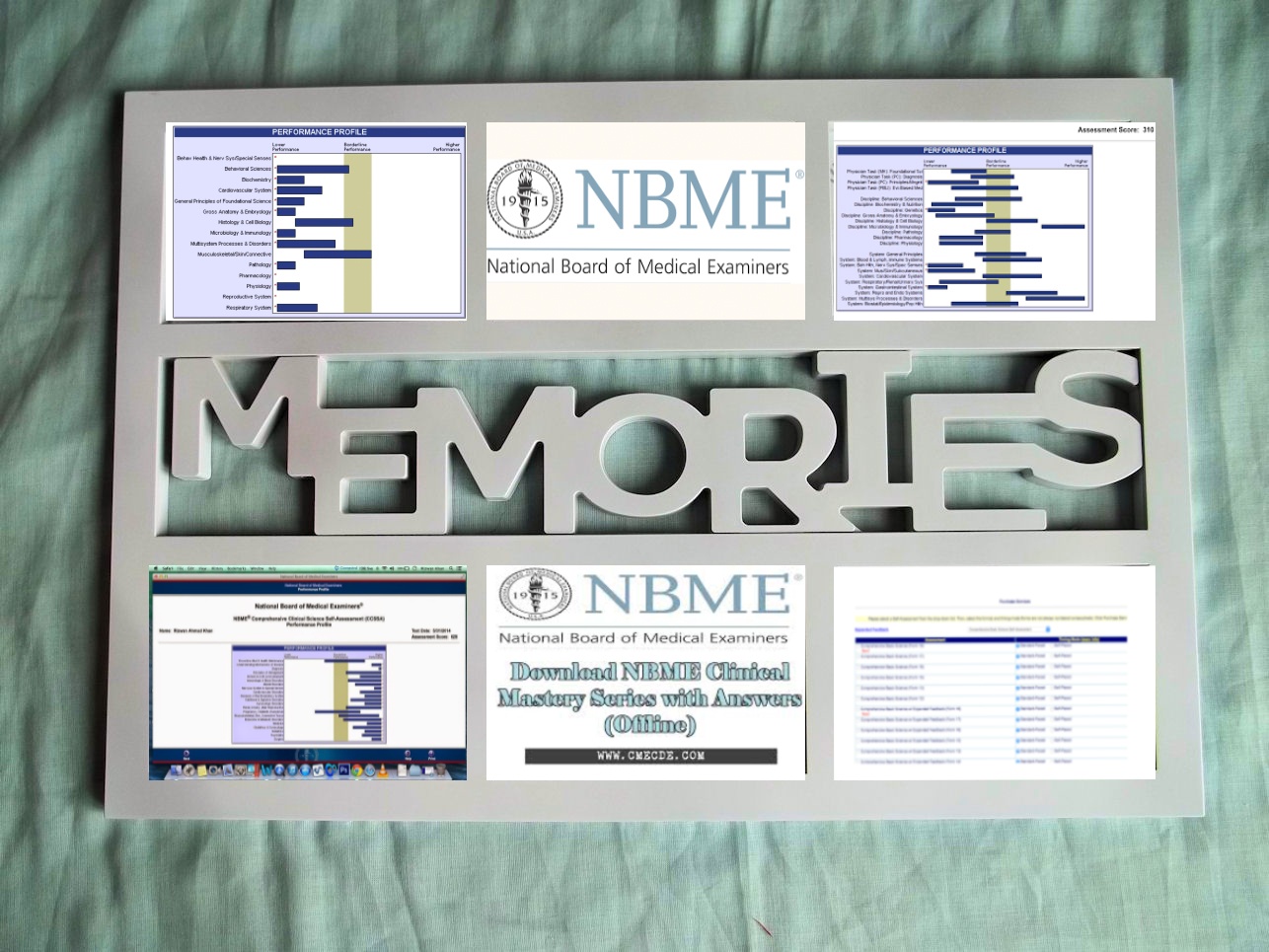Forget (NB)ME Not: Why Reusing NBMEs is Something to Remember
- by
- Jun 12, 2018
- Reviewed by: Amy Rontal, MD

We recently discussed the do’s and don’ts of using UWorld, the quintessential study tool, multiple times. In this post, we will discuss if and when it may be appropriate to reuse the key assessment tool, NBME self-assessment examinations. The following questions and answers can help you determine if you should retake a practice exam.
How long ago did you last take the practice assessment?
The longer it has been since you last took an NBME exam, the less you will remember. Although rare, some students take NBME practice exams and then end up delaying their test for many months. Others end up taking a gap year. For these reasons, some students many have taken the practice tests months or years ago and in these instances, are unlikely to remember many questions on the assessment. The NBME is therefore still likely to be a good gauge of Step 1 readiness. For those who more recently took a practice exam, the NBME practice test may not accurately estimate potential Step 1 performance as students may receive higher predicted scores due to remembering the questions.
What other practice exams do you have available?
While the NBME self-assessment tests are generally regarded as the most accurate indicators of potential Step 1 performance, other practice exams are available. These include UWorld self-assessments (UWSA) and Kaplan practice tests. UWSAs may occasionally slightly over-predict potential Step 1 performance but still offer a diverse range of USMLE-style questions and have the advantage of providing full explanations for all questions. If a student has taken all 6 NBME self-assessment examinations in a relatively short time period, taking one of these other practice exams may be a better option that repeating an NBME.
Students may run out of NBME practice exams for a variety of reasons. Some students have multiple months of dedicated study, and so by taking an NBME every week or every other week, they may run out of NBMEs in the final weeks of preparation. Other students take all NBME practice exams and then do not pass Step 1 on the first attempt, so on subsequent studying they do not have any new, unused NBMEs to work with. For the majority of students, however, six NBME practice exams should be enough for a dedicated Step 1 study period and there will be no need to reuse an examination.
How many practice exams have you taken?
Barring one of the situations described above, if a student runs out of new NBME assessments, it may be because they are taking practice exams too frequently. For most students, I recommend they take at least 3 NBME practice assessments and score comfortably above passing (>200+) prior to their Step 1 examination.
In some instances, it is necessary to take more assessments. This includes not only situations where a student has an extended period of time to study, but also students who have not yet met their goal score or are struggling to achieve a passing score. In general, students should not take more than one practice assessment per week. Students testing more frequently not only risk using up the NBMEs too quickly but are also likely not spending enough of their time studying and addressing weak areas prior to re-assessing knowledge.
In summary, the NBME self-assessment practice exams are essential tools for students to gauge their progress and predict Step 1 performance. Repeating NBME exams generally reduces their predictive accuracy because students remember some of the questions and answers. If a significant amount of time has passed since using the practice exam the first time, predictive potential will be more accurate. However, if a student took the exam more recently, other practice exams such as a UWSA may be more accurate in gauging Step 1 readiness. While all students should take at least 3 or more NBME practice exams, ideally these will be appropriately spaced throughout the dedicated study period so as not to use up the 6 NBMEs too quickly. Remember to allow for proper studying and learning between assessments.









